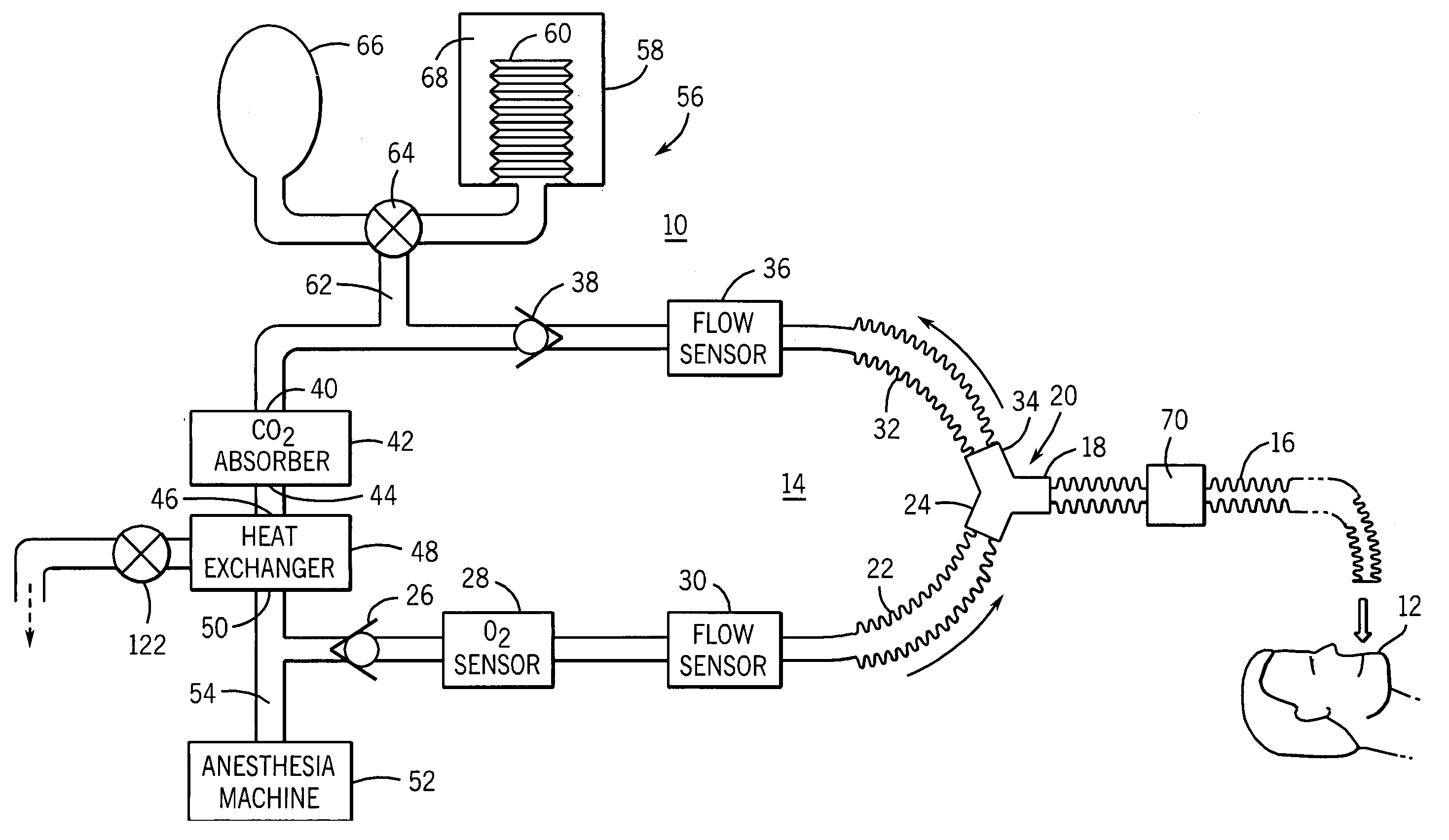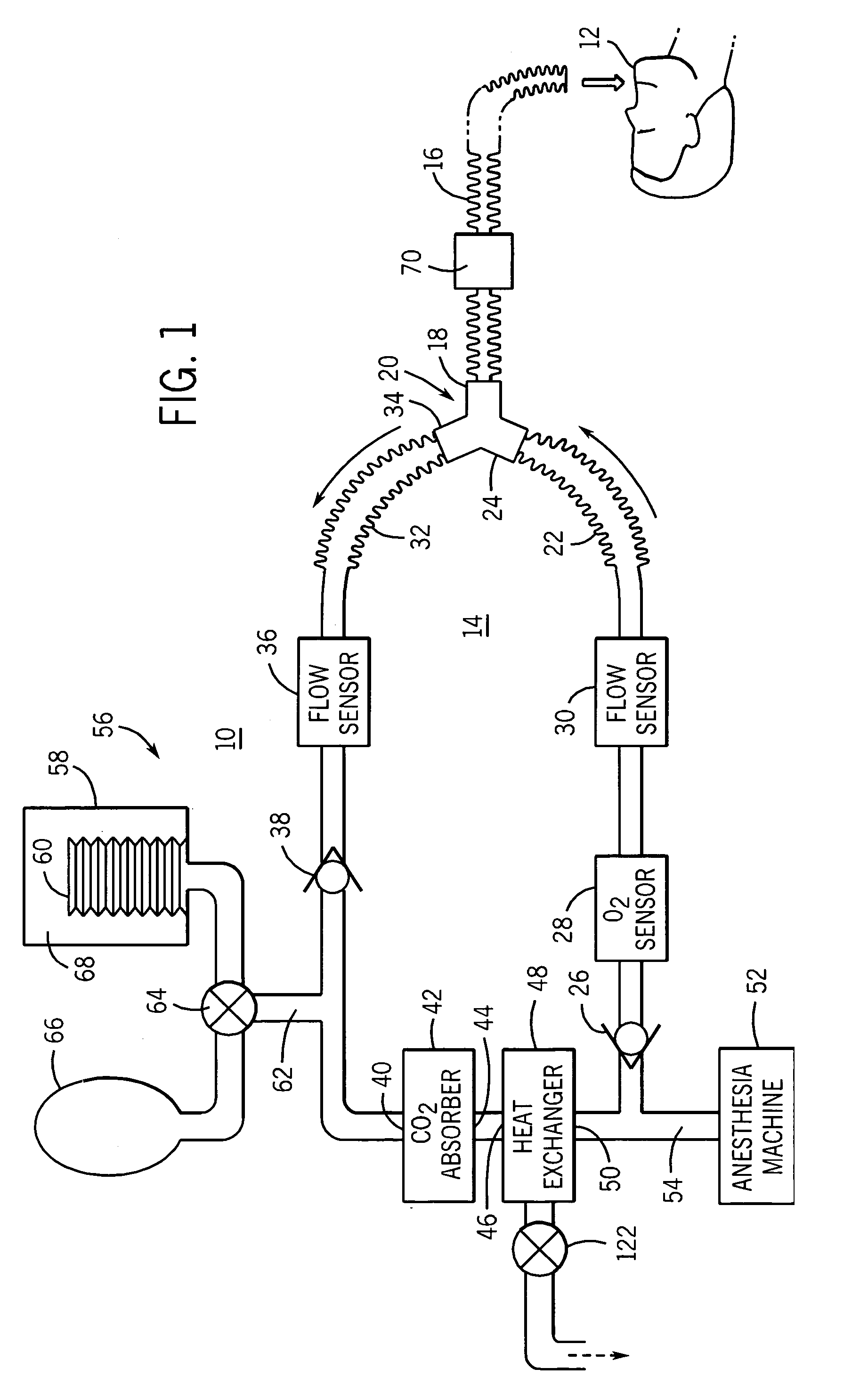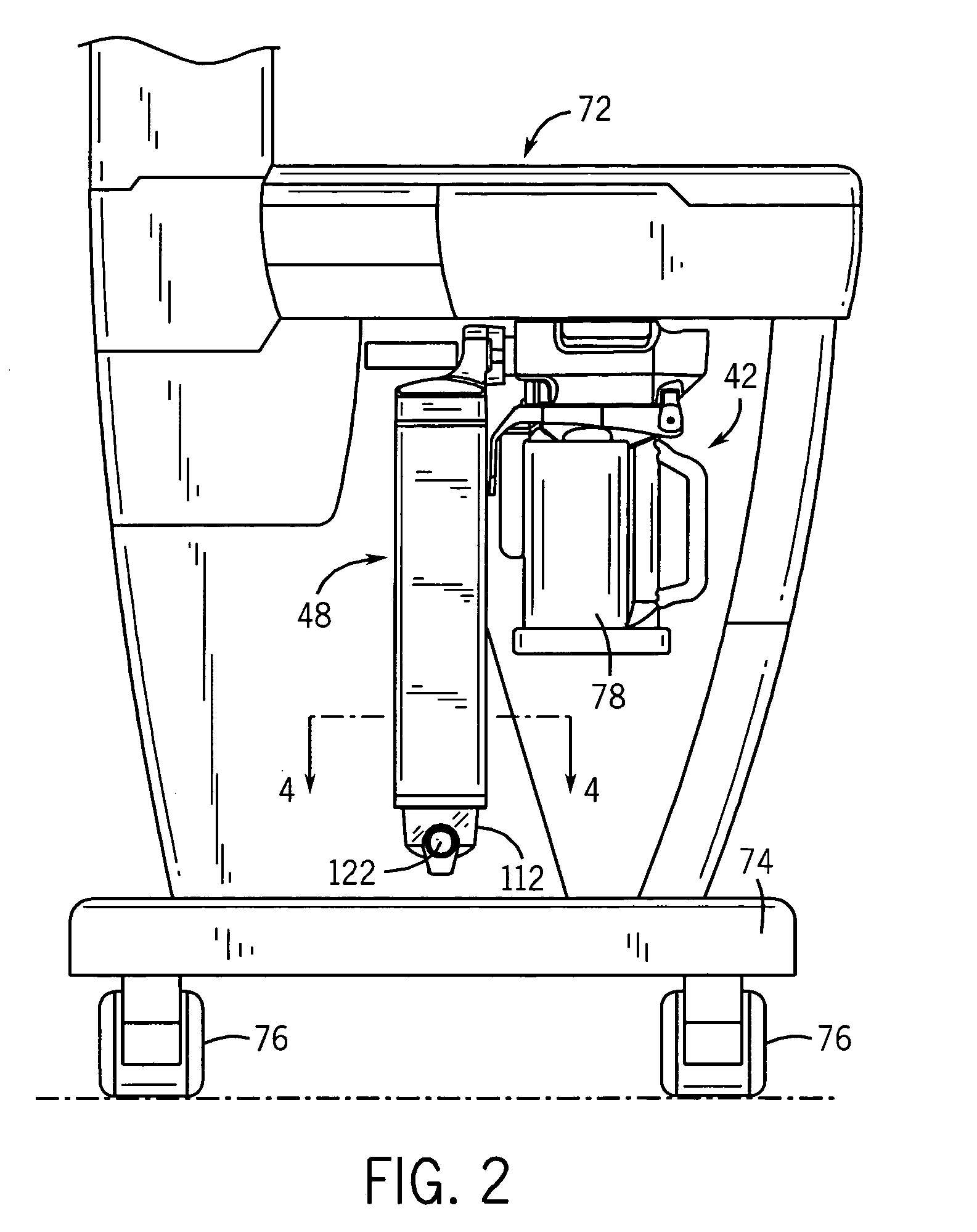Room temperature heat exchanger for breathing circuit
a heat exchanger and circuit technology, applied in the field of room temperature heat exchanger for breathing circuits, can solve the problems of affecting the operation of valves, sensors or other components, heating devices adding to the complexity of breathing circuits, and often not being desired, so as to prevent undesired condensation
- Summary
- Abstract
- Description
- Claims
- Application Information
AI Technical Summary
Benefits of technology
Problems solved by technology
Method used
Image
Examples
Embodiment Construction
[0019]FIG. 1 illustrates a ventilation system 10 for mechanically ventilating a patient 12. The ventilation system 10 includes a closed breathing circuit 14. The closed breathing circuit 14 includes a patient limb 16 that delivers breathing gases to the patient 12 from a first leg 18 of a Y-connector 20.
[0020]The breathing circuit 14 includes an inspiration limb 22 connected to the inlet leg 24 of the Y-connector 20. The inspiration limb 22 receives the flow of breathing gases to be supplied to the patient 12 through a check valve 26. In the embodiment of the invention illustrated, an oxygen sensor 28 and a flow sensor 30 are positioned between the check valve 26 and the inspiration limb 22.
[0021]The closed breathing circuit 14 includes an expiration limb 32 connected to the outlet leg 34 of the Y-connector 20 to receive the exhaled breathing gases from the patient. The exhaled breathing gases pass through a flow sensor 36 and a check valve 38. The expiration limb 32 is connected to...
PUM
 Login to View More
Login to View More Abstract
Description
Claims
Application Information
 Login to View More
Login to View More - R&D
- Intellectual Property
- Life Sciences
- Materials
- Tech Scout
- Unparalleled Data Quality
- Higher Quality Content
- 60% Fewer Hallucinations
Browse by: Latest US Patents, China's latest patents, Technical Efficacy Thesaurus, Application Domain, Technology Topic, Popular Technical Reports.
© 2025 PatSnap. All rights reserved.Legal|Privacy policy|Modern Slavery Act Transparency Statement|Sitemap|About US| Contact US: help@patsnap.com



